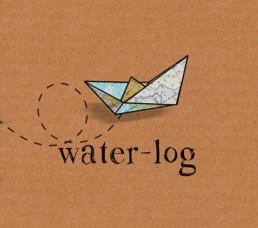We are now fifteen weeks into our trip and I thought that it was high time to elaborate on a term that I’ve thrown around rather a lot: nightwatch.
Contrary to what my father may think, when you are on a long passage such as our Morocco to Canaries run (6 days) or our Atlantic crossing (20 days), you cannot just anchor when night falls. One big reason for this is depth as the Atlantic is over 4,000 metres deep and that would be a gigantic weight of chain to carry!
Anyone who sails knows that it is important to keep a proper watch at all times. There are various ways of doing this. Yes, it may mean that someone is at the wheel at all times. However, if you are motoring, you have enough power to be using the autopilot so you may have more ability to move about the deck and check that all is as it should be. Being at the helm when you are under sail doesn’t necessarily glue you to the wheel either as it’s important to keep checking under your sails for other vessels, suspicious looking clouds, lights, etc as well as assessing if you’re happy with the amount of canvas you have up or the course you’re making. You do your watch and then give the next member of crew a brief update on what changes, if any, you’ve experienced and how the boat is handling.
Handing over can be a funny thing as we often found that the weather conditions changed per shift. I’ve lost count of the number of times that I handed over to Lis with a sky full of stars, mild winds and little swell only to hear her 10 minutes later swearing in Estonian at the force 6 gusting a 7 and the mad downpour of rain from the murky black sky that she was now presented with.
So, how do you sail through the night? There are many different kinds of nightwatch that we’ve experienced just in the time we’ve been going so far. There were the ones for the Biscay crossing (3 hours on, 3 hours off) where two people would jointly be on watch and be at the helm for an hour and a half each whilst playing alphabet games or Andy Grant’s “Where am I hiding” game. James and I had nightwatches on our Vigo to Gibraltar leg when it was just the two of us (2 hours on, 2 hours off) so one would helm and the other would doze in the cockpit next to the wheel if they were needed.
The wild weather that we encountered on the start of the Atlantic crossing required us to double up watches but Lis was down with seasickness so James and I would jointly do one 3 hour shift while Paul manned up to a solo shift (being the most experienced of us in rough weather sailing). During these shifts I remember using all my strength at the wheel to keep us on course while James looked at the enormous waves building and breaking at our stern with a mix of awe and horror. We had to congratulate each other a lot for holding our own in those conditions.
But, the real point of this post, was that I wanted to talk about the solo nightwatches. Once we’d got into a rhythm of the conditions in the Atlantic, we were all able to stand watch alone, even when it was pretty wild. We operated a 2 hours on, 6 hours off pattern, whenever possible, as it allowed us all to be well rested. We adapted this to times when people had bad migraines, seasickness or when the sun got so hot that we could only bear one hour at a time in the searing tropical heat.
A solo nightwatch on a boat with 3 other people can be a wondrous thing, as it’s often the only time you get to yourself to reflect and meditate on the day’s events. Sometimes you play music for the whole two hours, perfecting ‘boat dancing’ which is a strange form of it that only works at the wheel (thank god we have no webcam lashed to the mast). Or even our patented ‘spinnacle round the binnacle’ moves. Music in this context becomes strangely poignant as you realise just how many songs have lyrics which reference the sea. Sometimes, the brightness of the moon, the myriad stars which seem to grow in number as you’re looking at them, or the bright green explosions of phosphorescence dancing on the water’s surface is enough to hypnotise you into a state of complete wonder at your good fortune to witness it. Other times the sea is dark and wild and fast and you’re humbled by its power as you use every inch of your wits to keep sailing steady. You might be watching the horizon, waiting for that next flash of lightning, wondering if it will be closer than the last and will be the first real indication of that low pressure system that you never wanted to meet. Or, there are others, where the conditions are just the same as when you get into the ‘zone’ when you’re painting, or writing or any other creative pursuit. I call these my nightwatch epiphanies, where your brain seems to flood with plans, ideas and schemes: for the next leg, the next move, the next place.
